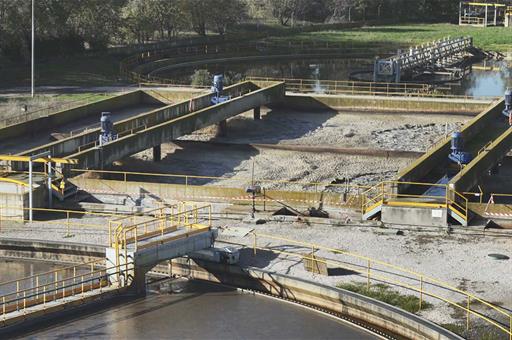Second phase of VATar-COVID-19 project to monitor new variants of the virus in wastewater begins
News - 2021.12.3
This project has been jointly developed with the Ministry of Health and with the support of the Spanish National Research Council( CSIC), attached to the Ministry of Science and Innovation, and CEDEX and the regional governments.
In the continuation of the project, in addition to the analysis to determine of the presence of SARS-CoV-2 in wastewater, further studies will be carried out to monitor known variants of the virus and the identification of new strains by mass sequencing.
Follow-up of the new Omicron variant
In particular, the laboratories associated with the VATar-COVID-19 project have been fine-tuning techniques for weeks to detect the new B.1.1.529 variant known as Omicron in wastewater, which is currently alarming health authorities and the international scientific community.
This monitoring will be essential to identify affected populations, as due to the level of vaccination, many of those who may be infected may be asymptomatic.
Throughout today, staff from MITECO and the laboratories collaborating in the VATar-COVID-19 project will take part in a meeting organised by the European Commission to discuss techniques to detect the Omicron variant in wastewater.
Broadening of sampling points
The first phase of the project was completed in September 2021 with the presence of SARS-CoV-2 RNA fragments being determined in 38 wastewater treatment plants. This second phase aims to broaden the sampling and analysis to more than 50 stations.
For this, new wastewater treatment plants (WWTPs) from the Autonomous Communities of Castilla-La Mancha, Galicia, Aragon, Comunidad Valenciana, Murcia, Andalusia and the Canary Islands will be included in the coming weeks.
A total of 3960 wastewater samples are planned to be analysed for SARS-CoV-2 RNA concentration and majority variants, and 990 samples to detect potential new lineages by mass sequencing.
As in the previous phase of the VATar-COVID-19 project, the data is sent weekly to the Ministry of Health and to the health authorities of the Regional Governments and Hydrographic Confederations, with the proportions of the predominant variants and the results obtained by sequencing included in the information. This information will be published on the MITECO website weekly and will be available through this link.
Non official translation





